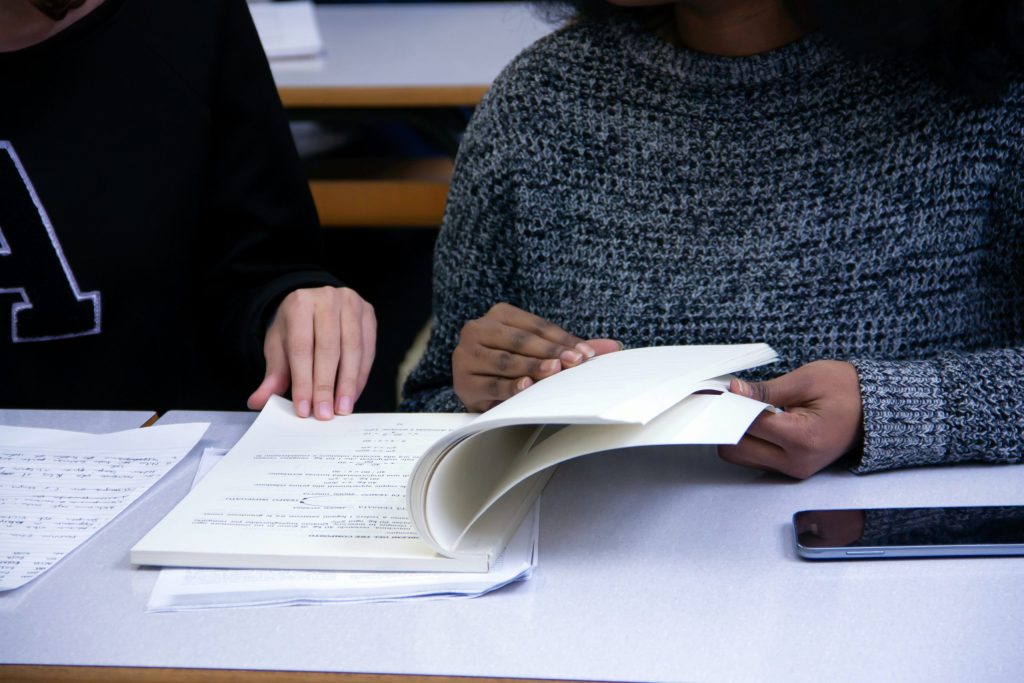2020 has been a strange year, and for matrics getting ready to write final exams soon, it must feel like the twilight zone. After a year of some combination of hybrid learning, home schooling, attending regular classes and sometimes not having class, South Africa’s grade 12s are buckling down to face exam stress and hopefully put this final year of schooling behind them.
Exam stress effects each student differently. Some relish the challenge and are able to stay focussed, some feel totally overwhelmed and can’t concentrate, while others struggle with anxiety and lack of sleep. We’ve rounded up a few top tips to help matric students get through this final matric exam season:
How to better navigate exam stress
Tip 1: Manage your time
Let’s first be clear about the following key points:
- Make a flexible timetable to organise your work
- Cover all topics in your schedule
- Put the difficult subjects at the top of your list
- Aim for a practical set of deadlines
Once you have organised your time according to your tasks, figure out how much time you need to invest in your studies. Taking that hour-count in mind, you can make the rest of your daily schedule. Remember to include time out for relaxation, exercises, etc.
Follow a routine and trust in your abilities but allow for some flexibility. You can avoid last-minute stress if you’re diligent from the start.
Tip 2: Try out mock tests and papers
Ask your teachers or search online for past matric exams. Write those tests within a certain time frame, just as you would a real exam. Not only will this help boost your confidence, but it will also help you identify any areas of work you need to focus on.
If you can’t access online tests, work with friends to create your own tests and test each other. Creating the tests and then answering the questions under “manufactured pressure” (i.e., simulating an exam environment with time constraints) will help you consolidate the knowledge further.
Taking mock-tests in the initial phases of preparation has two additional benefits:
- It conditions you for exam pressure
- It reveals your speed of writing
Tip 3: Maintain a balanced diet
It might be tempting to indulge in stress eating and grab a pack of Doritos or a big slab of chocolate, but a balanced diet is more important than ever during exams. Your brain needs enough energy to function properly.
The human body responds to exam stress by releasing cortisol, which is known as the stress hormone. It increases your blood pressure and your heart rate. Eating a healthy, balanced diet is known to help lower cortisol levels. Pay special attention to increase protein intake, eat less sugar, and keep hydrated.
Tip 4: Less social media
Ever start scrolling on your Instagram feed and end up clicking on one video, watching the next one, and the next, and the next… until it’s an hour later and you don’t know where the time went? This is the procrastination that comes with social media. Can you really afford to waste time like that during exams? Also, scrolling through photos and videos of your friends out having fun while you’re stuck at home study can create serious FOMO and you don’t need to add that to your exam stress.
Yes, down time is important, and sometimes mindless scrolling is exactly what the doctor ordered. But you’ll have to make sure you’re disciplined. Set an alarm to let you know when your time is up. If you don’t think you can be that disciplined, consider deleting your social media apps from your phone or installing an app that blocks particular sites.
Tip 5: Make sleep a priority
If you don’t relax your mind, it will be harder to retain new information – so make sleep a top priority during exams. A growing body of research shows the connection between good sleep and grades, impacting memory and problem-solving skills.
You may have heard that you need to get eight hours of sleep, but when you’re talking about sleep, the quality matters as much as how long you sleep. Deep sleep (also known as stage 3 and 4 sleep) is when your body reaches the deepest state of relaxation, helping you to wake up feeling refreshed. During deep sleep, your body regenerates cells and repairs tissues and bones, and your immune system is strengthened.
If you don’t have a comfortable mattress, you might struggle to fall into a deep sleep because your body simply can’t relax. You might end up tossing and turning, keeping your body alert. If you are waking up tired all the time, you might need to consider investing in a new mattress. Sealy’s zoned mattress made with exclusive Posturepedic Technology™ support the heaviest parts of your body, providing you with deep, targeted support for exceptional all-over comfort.
Sealy Posturepedic Technology™ supports your sleep by providing:
- Pressure relieving comfort for undisturbed sleep: from ultra-plush to cushion firm, built with premium materials.
- The support you need: deep-down orthopedically correct support with a superior edge support system.
- A system where everything works together to give you the same great comfort and support for a long time: extra durability that repays your investment day after day.
You’ve got this
These are unusual times, and Coronavirus has added a layer of stress in almost everyone’s lives – and especially for matrics who are dealing with exam stress. However, what you need to remember is simple. With consistent efforts, you can get through this.
Give yourself time whenever you feel drained out and don’t forget to remind yourself that this phase will pass soon. We trust your abilities and wish you the best for your examinations!






